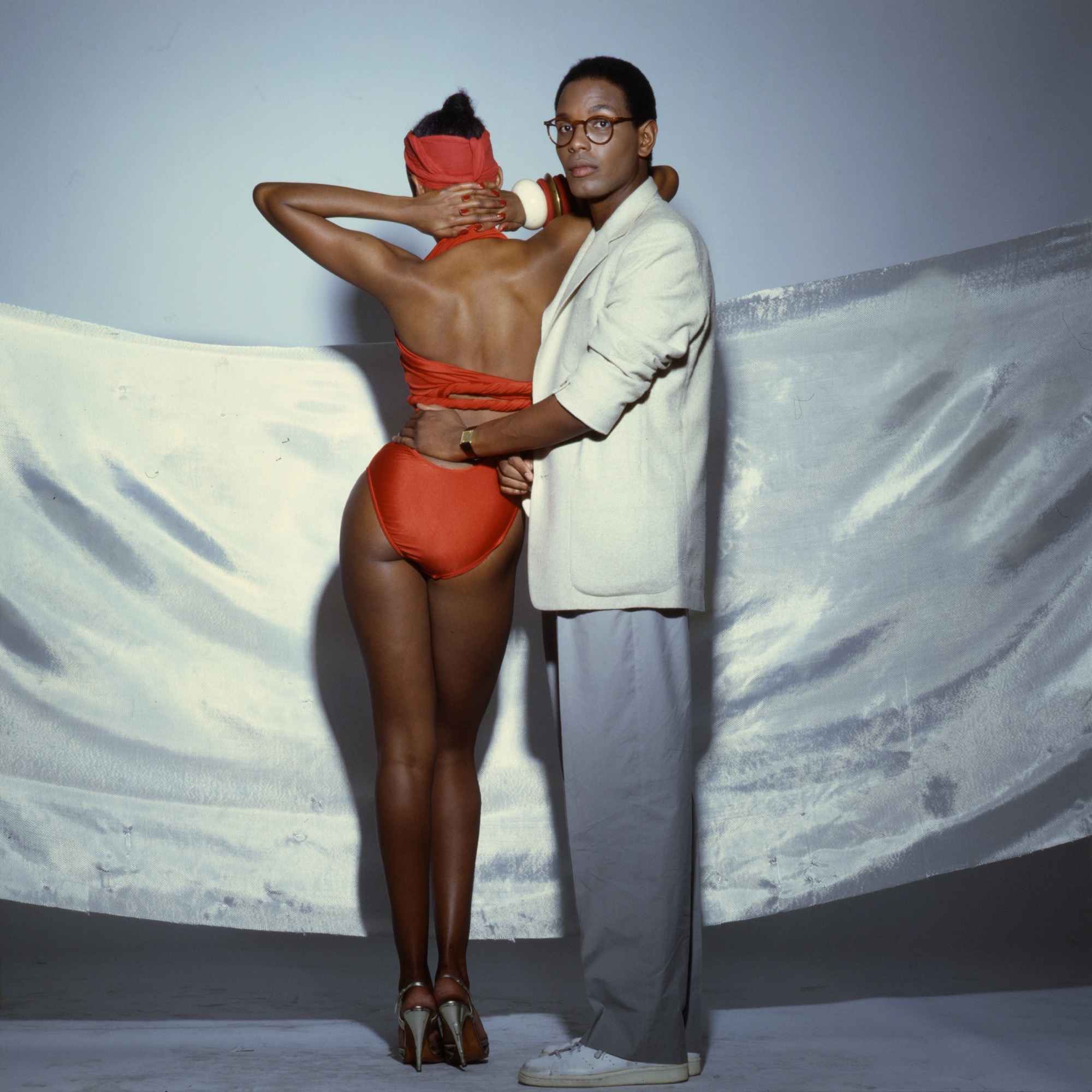Heroes: Willi Smith
Nominated by Ming and Aoki Lee Simmons.

This article appears in the pages of V124: Generation V, available for purchase now at shop.vmagazine.com.
In 1983, African-American fashion designer Willi Smith presented a collection dubbed “Street Couture.” Though a seemingly oxymoronic notion at the time, the collection’s fusion of fashion and streetwear uncannily foreshadowed our current standards of dress. Smith was a precursor and a true original, yet his credit as a streetwear catalyst remains largely overdue. Now, an exhibit on Smith, opening this spring, is helping to even the scales.
Born in Philadelphia in 1948, Smith was the son of an ironworker and a homemaker. Black and homosexual, he managed to survive the obstacles thrown at him by pre-integration society, if his famous charisma and undeniable talent was any proof. After high school, Smith accepted a scholarship from Parsons School of Design.
In New York, he encountered a city in the midst of revolution, with both the civil and gay rights movements gaining steam. Then, Parsons expelled Smith in 1967, citing a romantic relationship with another student. But his hustle and prowess ensured he would thrive outside the classroom. By the early ‘70s, Smith had landed a gig at sportswear label Digits. His calling card there was combining a sense of color, easy-to-wear classics, and thought-provoking imagery, one that lent the brand youthful cache. This soon caught the fashion establishment’s attention: In 1971, Smith received his first Coty Award nomination, then fashion’s biggest accolade.
Fast-forward to 1976, when Smith partnered with Laurie Mallet to incorporate WilliWear Limited. In producing fashionable designs at affordable prices, their success was immediate: WilliWear was soon grossing over $25 million in sales (or $80 million today). Smith also became an early conduit between fashion and other creative industries: In addition to art collabs with the likes of Keith Haring, Smith would design costumes for Spike Lee joints.
Smith’s influence can be seen not only in the blockbuster, black-owned labels of the ’90s like Baby Phat (recently relaunched under the tutelage of founder Kimora Lee Simmons’s daughters, Ming and Aoki) but also present-day designers like Telfar Clemens and Kerby-Jean Raymond. He was a fashion designer of the people, as his 1978 quote illuminates. “I don’t believe my creativity is threatened by commercialism. Quite the opposite—I think that the more commercial I become, the more creative I can be, because I am reaching more people,” he told Fashion World. Sadly, that forward-thinking vision was cut short when, in 1987, Smith died from AIDS complications. And though WilliWear may have been an early model of commercial success, Smith wasn’t in it for the clout.“I don’t design clothes for the Queen,” he once said.“[I design for] the people who wave at her as she goes by.”
“WILLI SMITH: STREET COUTURE” OPENS AT COOPER HEWITT ON MARCH 13

Discover More
